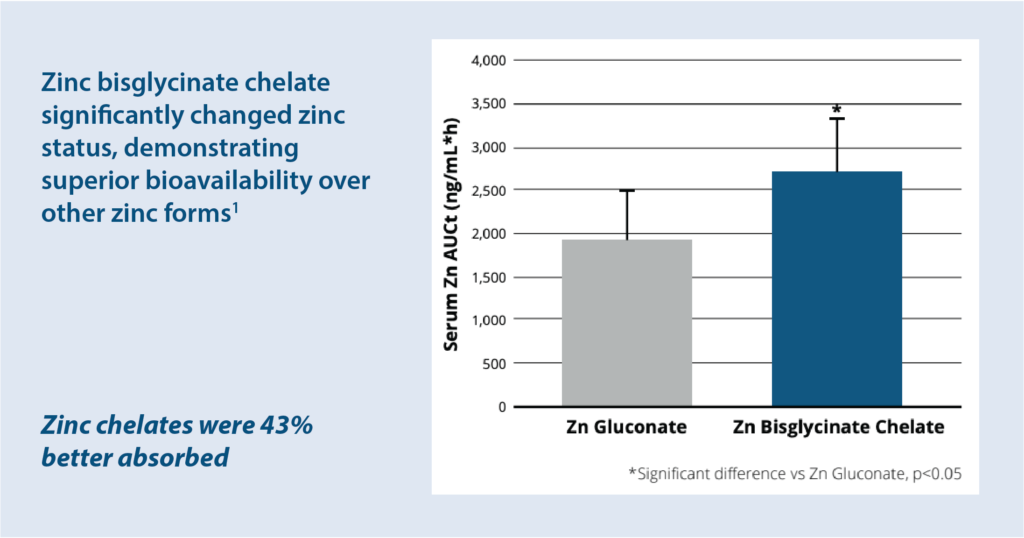In our fast-paced world, maintaining optimal health can feel like a daunting task. With busy schedules leading to consumption of over-processed food with poor nutritional quality and not enough fresh, nutrient-rich foods, ensuring our bodies receive enough essential vitamins and minerals is challenging. Daily multivitamins offer a convenient and effective way to fill in these nutritional gaps to support overall health and can insure against hidden micronutrient insufficiencies that drain health and long-term vitality.
Multivitamins are designed to provide a broad spectrum of essential vitamins and minerals that might be missing from the diet. Each nutrient serves a vital role within the body so even “small” deficiencies can have large impacts on overall health and quality of life. The chart below shows the far-reaching health benefits of multivitamins, and which specific vitamins and/or minerals contribute to them:
- Immune System Support: Vitamins C, D, and E, Zinc and Selenium
- Eye Health Support: Vitamins A, C, E and B3 (niacin), and Selenium
- Energy Support: B Vitamins and Magnesium
- Mood Support: Vitamins B12 and B9 (folate)
- Bone Support: Vitamins K and D, Calcium and Magnesium
- Muscle Support: Vitamins D, C and B12, and Magnesium
- Hair, Skin and Nail Health: Vitamins A, C, E and B7 (biotin)
- Cardiovascular Support: Vitamins B, D and K, and Magnesium
- Cognitive Support: Vitamin D and B vitamins
Ensuring the body is absorbing nutrients
When choosing a multivitamin, it’s not just about the list of nutrients it contains but also how well those nutrients are absorbed and utilized by the body. This is where bioavailability comes into play. Bioavailability refers to the proportion of a nutrient that enters the circulation when introduced into the body and is therefore able to have an active effect. Bioavailability ensures that the nutrients in supplements are efficiently absorbed and utilized by the body, maximizing health benefits, minimizing side effects, and supporting overall well-being.
Certain forms of nutrients are better absorbed than others. For example, vitamin B12 as methylcobalamin, is more easily absorbed than vitamin B12 as cyanocobalamin, and vitamin B9 (folate) as 5-MTHF is more bioavailable than vitamin B9 as folic acid. Similarly, minerals like zinc and magnesium that are chelated – chemically combined with easily absorbed amino acids — are more bioavailable than non-chelated minerals. Understanding the forms of nutrients can help ensure the body is reaping the full benefits of a multivitamin.

Who should take a multivitamin?
Multivitamins can be beneficial for most people, but certain groups may particularly benefit from them.
- Vegetarians or vegans: Plant-based diets can often lack certain nutrients found primarily in animal products, such as vitamin B12, iron, and omega-3 fatty acids
- Pregnant and Breastfeeding Women: Pregnant and breastfeeding women have increased nutritional needs to support fetal development, milk production and their own health, such as extra folic acid and iron
- Older Adults: As people age, their bodies may absorb nutrients less efficiently, and their dietary requirements can change. Multivitamins can help ensure they get enough nutrients to support overall health.
- People who are taking medication: Certain prescription drugs can deplete the body of important nutrients and even prevent the body from absorbing some nutrients
- Athletes: Those who engage in intense physical activity may have higher nutritional requirements and benefit from additional vitamins and minerals to support energy levels and recovery
- People consuming a diet lacking nutrient-rich foods: Poor or inadequate diets whether from a busy lifestyle, stress, unreliable access to fresh foods, or something in between, often lead to nutrient deficiencies. Multivitamins may assist with some nutritional inadequacies.
Even with a balanced diet, it can be difficult to consume all the nutrients the body needs daily. Multivitamins don’t replace a balanced diet, but rather build upon this foundation and help bridge any nutritional gaps, ensuring the body functions optimally and possibly eliminating some quality of life issues due to these gaps.
References
Gandia P (2007) Int J Vitam Nutr Res, 77(4):243-8

